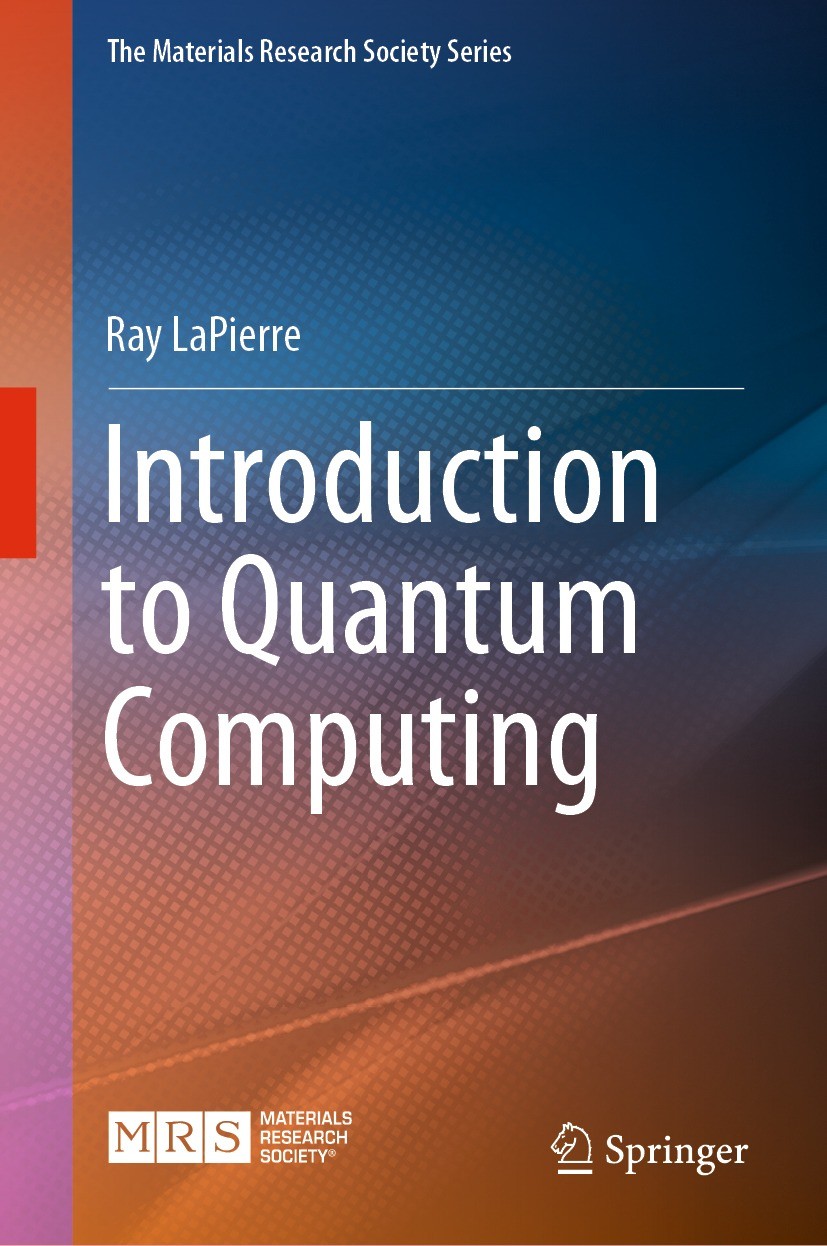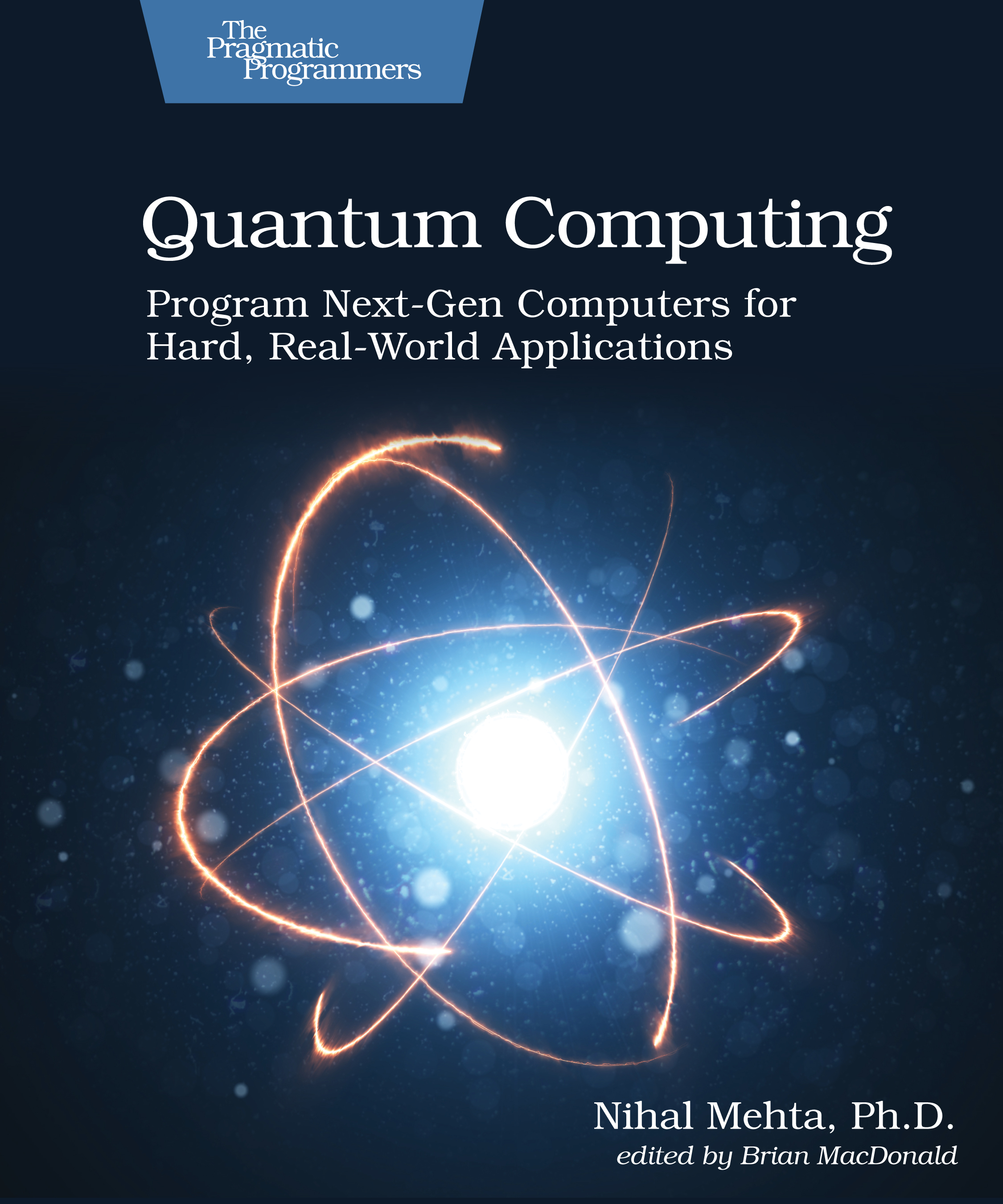Expand your knowledge with top-rated books about quantum computing. Perfect for enthusiasts, students, and tech professionals.
Quantum computing books help us understand this complex subject. They break down tough concepts into simple ideas. Whether you are new or experienced, there is a book for you. These books offer insights into how quantum computers work. They also show how quantum computing can solve real problems.
Reading them can expand your knowledge and spark curiosity. You will find history, theory, and practical applications. Dive into this exciting world and see what quantum computing has to offer. Let’s explore some great books on this topic.

Credit: link.springer.com
Introduction To Quantum Computing
Quantum computing is a fascinating field at the intersection of physics and computer science. It promises to solve problems that are beyond the reach of classical computers. Understanding this field requires diving into the basics of quantum mechanics and how it applies to computing.
The Birth Of Quantum Theory
The birth of quantum theory began in the early 20th century. Scientists like Max Planck and Albert Einstein started to explore the behavior of particles at the atomic and subatomic levels. They discovered that particles do not always behave in predictable ways. This led to the development of quantum mechanics.
Quantum mechanics explains the strange behaviors of particles. It introduces concepts like superposition and entanglement. These concepts are crucial for quantum computing. Superposition allows particles to exist in multiple states at once. Entanglement links particles so their states are connected.
Quantum Vs Classical Computing
Classical computers use bits as the smallest unit of data. These bits represent either a 0 or a 1. Quantum computers use qubits, which can represent both 0 and 1 simultaneously. This is due to superposition.
Quantum computers process information differently. They can solve complex problems faster than classical computers. This makes them powerful for cryptography, drug discovery, and complex simulations.
Understanding the differences between classical and quantum computing is key. It helps to appreciate the potential of quantum computing. Books on this subject often start with these basic concepts.
Foundational Texts
Quantum computing is a complex and fascinating field. For those new to this area, foundational texts are essential. These books provide a solid grounding in the principles and theories of quantum computing. They are invaluable resources for anyone looking to understand the basics and beyond.
Must-read Books
Several must-read books can help you grasp quantum computing fundamentals. These books cover everything from basic principles to advanced concepts.
| Book Title | Author | Description |
|---|---|---|
| Quantum Computation and Quantum Information | Michael A. Nielsen, Isaac L. Chuang | This book is a comprehensive resource. It covers both theoretical and practical aspects of quantum computing. |
| Quantum Computing since Democritus | Scott Aaronson | This text combines humor and insight. It explores quantum mechanics, computer science, and more. |
| Introduction to Quantum Mechanics | David J. Griffiths | This book is known for its clear explanations. It is an excellent starting point for beginners. |
Pioneering Authors
Several authors have made significant contributions to the field of quantum computing. Their works are considered essential reading.
- Michael A. Nielsen: His books are detailed and thorough.
- Isaac L. Chuang: Collaborated with Nielsen on key texts.
- Scott Aaronson: Known for making complex topics accessible and engaging.
- David J. Griffiths: His clear writing style is widely appreciated.
Reading these foundational texts by pioneering authors can provide a strong understanding of quantum computing. They offer valuable insights and in-depth knowledge.
Beginner-friendly Books
For beginners, diving into quantum computing can feel overwhelming. But, there are books designed to simplify concepts and make learning easy. These beginner-friendly books provide a solid foundation without complex jargon.
Simplified Concepts
Quantum computing involves intricate ideas. However, some books break down these ideas into simple terms. One such book is “Quantum Computing for Everyone” by Chris Bernhardt. It explains quantum mechanics in an accessible way. Readers get a clear understanding without feeling lost.
“Quantum Computing: A Gentle Introduction” by Eleanor G. Rieffel and Wolfgang H. Polak is another excellent choice. It covers the basics in a step-by-step manner. This book uses real-world examples to explain abstract concepts. Thus, making it easier for beginners to grasp.
Best Starting Points
For those new to quantum computing, starting with the right book is crucial. “Quantum Computing for Dummies” by William Hurley and Floyd Smith is a great pick. It provides an easy-to-follow introduction. This book includes practical examples and simple explanations.
“Quantum Computation and Quantum Information” by Michael Nielsen and Isaac Chuang is also a must-read. Though comprehensive, it starts from the basics. Beginners can gradually build their knowledge. This book is often recommended by experts.
These books offer a gentle introduction to quantum computing. They simplify complex topics and make learning enjoyable. Perfect for anyone eager to understand this fascinating field.

Credit: www.riverpublishers.com
Advanced Quantum Computing
Advanced Quantum Computing is a fascinating field. It delves into the complexities of quantum mechanics. This branch of study goes beyond basic concepts. It explores intricate theories and deep research. For those passionate about this topic, there are numerous books available. These books provide a thorough understanding of advanced quantum computing.
Complex Theories
Books on advanced quantum computing often cover complex theories. These theories include quantum entanglement and superposition. They explain how particles interact in mysterious ways. Authors break down these concepts into simpler terms. This helps readers grasp difficult ideas more easily. Understanding these theories is crucial for mastering advanced quantum computing.
In-depth Studies
Many books provide in-depth studies of quantum computing applications. They explore real-world uses, from cryptography to quantum algorithms. Detailed case studies help readers see practical applications. These studies also highlight ongoing research in the field. By reading these books, one can gain a comprehensive view. The information is both theoretical and practical.
Quantum Algorithms
Quantum algorithms are the heart of quantum computing. These algorithms leverage the unique properties of quantum bits (qubits) to solve problems faster than classical computers. In this section, we will explore two important quantum algorithms: Shor’s Algorithm and Grover’s Algorithm.
Shor’s Algorithm
Shor’s Algorithm is one of the most famous quantum algorithms. It factors large numbers efficiently, which is essential for cryptography. Classical computers struggle with this task. But Shor’s Algorithm can do it in polynomial time.
Here is a simple breakdown of how Shor’s Algorithm works:
- Choose a random number a.
- Compute the greatest common divisor (GCD) of a and n.
- Find the period r of the function a^x mod n.
- Use the period r to factor n.
Shor’s Algorithm demonstrates the power of quantum computing in breaking cryptographic codes. This has significant implications for data security.
Grover’s Algorithm
Grover’s Algorithm helps to search unsorted databases. It provides a quadratic speedup compared to classical search algorithms. This means it can find an item in a database of N items in about √N steps.
Here are the key steps of Grover’s Algorithm:
- Initialize the system in a superposition of all possible states.
- Apply the Grover iteration, which amplifies the probability of the correct answer.
- Measure the system to obtain the desired result.
Grover’s Algorithm is useful for various applications, such as searching large databases and solving NP-complete problems. Its efficiency showcases another advantage of quantum computing over classical approaches.
Quantum Mechanics Fundamentals
Delving into the world of quantum computing requires a solid foundation in quantum mechanics. Understanding the basics of quantum mechanics can make grasping the concepts of quantum computing easier. Let’s explore some key aspects of quantum mechanics that are fundamental to this field.
Wave-particle Duality
Wave-particle duality is a core principle of quantum mechanics. It states that particles, such as electrons, can exhibit both wave-like and particle-like properties. This duality is not something we observe in our everyday macroscopic world. For instance, light can behave as both a wave and a particle. This concept is crucial for understanding how quantum particles operate at a subatomic level.
Quantum Entanglement
Quantum entanglement is another fundamental concept. It describes a situation where particles become interconnected. Changes to one particle instantly affect the other, regardless of distance. This phenomenon puzzled even Einstein, who called it “spooky action at a distance.” Entanglement is key to many quantum computing processes, including quantum teleportation and super dense coding.
Applications In Modern Technology
Quantum computing is revolutionizing modern technology. Its applications are vast and diverse. From secure communications to advanced simulations, quantum computing offers new possibilities. This section explores its key applications.
Quantum Cryptography
Quantum cryptography enhances secure communication. Traditional encryption relies on complex algorithms. Quantum cryptography, however, uses quantum mechanics principles. This makes intercepting messages nearly impossible. The security relies on quantum entanglement and superposition. These properties ensure that any eavesdropping attempt alters the message.
Industries like finance and defense benefit greatly. They require high-level security for sensitive data. Quantum cryptography provides that security. It ensures that communications remain private and protected.
Quantum Simulations
Quantum simulations are another crucial application. They mimic complex systems that classical computers can’t handle. This includes chemical reactions and material properties. Quantum computers can simulate these systems accurately. This leads to discoveries in chemistry and physics.
Researchers use quantum simulations to design new drugs. They also explore new materials with unique properties. This accelerates innovation in various fields. It makes quantum simulations invaluable for scientific progress.

Credit: pragprog.com
Future Of Quantum Computing
The future of quantum computing holds immense potential. Quantum computing promises to solve complex problems faster than classical computers. As technology advances, new possibilities emerge, making quantum computing a fascinating field.
Upcoming Innovations
Experts predict several upcoming innovations in quantum computing. One significant area is quantum algorithms. These algorithms could solve problems that are currently unsolvable. Another focus is on quantum cryptography. This aims to create secure communication channels.
Researchers are also working on quantum hardware. This involves developing more stable and efficient quantum bits, or qubits. Better qubits can lead to more powerful quantum computers. As a result, industries like healthcare and finance may benefit greatly.
Challenges Ahead
Despite the progress, quantum computing faces many challenges. One major issue is qubit stability. Qubits are prone to errors due to environmental interference. Scientists are working on error-correction techniques to address this.
Another challenge is scalability. Building a large-scale quantum computer requires millions of qubits. This is a difficult task with current technology. Additionally, there is a need for a skilled workforce. Few people have expertise in quantum computing. Training more experts is crucial for future advancements.
Frequently Asked Questions
What Is Quantum Computing?
Quantum computing is a cutting-edge field that uses quantum mechanics principles. It aims to solve complex problems faster than classical computers.
Why Read Books About Quantum Computing?
Books on quantum computing offer foundational knowledge, explain complex concepts, and provide insights into future advancements in technology.
Can Beginners Understand Quantum Computing Books?
Yes, many books are written for beginners and explain concepts in an easy-to-understand manner.
Which Book Is Best For Learning Quantum Computing?
The best book depends on your knowledge level. “Quantum Computing for Everyone” by Chris Bernhardt is highly recommended for beginners.
Conclusion
Exploring books about quantum computing opens new doors of understanding. These books break down complex concepts. They make learning easier and fun. Reading them can enhance your knowledge. Dive into these resources to grasp quantum computing basics. They provide a solid foundation.
Keep reading, stay curious, and continue learning. Expand your horizons with each page. Happy reading!










